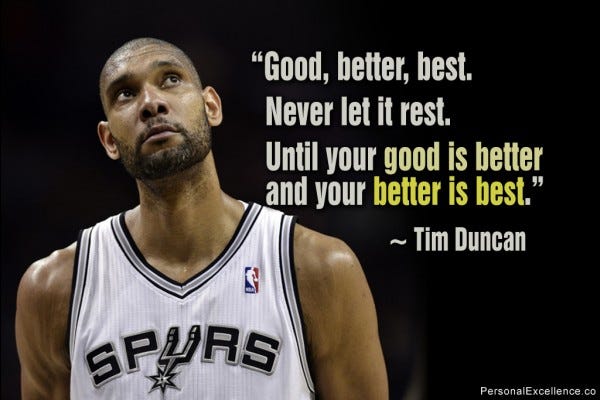The next 100 Days : Is it time for a sprint or marathon?
When to sprint, when to pace yourself, and how to win both ways.
Picture this: It's 8:47 AM, and Sarah stares at her laptop screen in the dim glow of her home office. The cursor blinks mockingly at the blank page where her quarterly report should be.
She's been "working" for three hours, but her time has vanished into a vortex of Slack notifications, urgent-but-not-important emails, and the kind of busy work that feels productive but produces nothing of lasting value.
Meanwhile, across town, her colleague David has just completed two hours of focused writing, phone in another room, notifications silenced, mind fully engaged with the complex strategy document that will shape their company's next year.
This scene plays out millions of times each morning across offices and home workspaces around the world. The difference between Sarah and David isn't intelligence, dedication, or even time management skills. It's their understanding of when to run marathons and when to sprint.
In our hyperconnected world, we've confused motion with progress, urgency with importance. Sarah represents what researcher Cal Newport calls "shallow work", the kind of logistical, reactive tasks that dominate our days but rarely move us toward meaningful goals.
It's work that operates on sprint mechanics: reactive, immediate, intense bursts of activity that leave us exhausted but oddly unfulfilled.
David, by contrast, has learned to protect what Newport terms "deep work", sustained, focused attention on cognitively demanding tasks that create real value.
This is marathon work: steady, patient, requiring endurance rather than explosive energy. The irony is striking: in a culture obsessed with speed and instant results, the most valuable professional outcomes require the patience of a marathoner.
The modern workplace has inverted our relationship with these two modes of operation. We sprint through shallow work, frantically responding to every ping and notification, while treating our most important projects like marathons, spreading them across months with sporadic, unfocused attention.
This approach guarantees mediocrity in both domains.
Professional athletes understand this rhythm intuitively.
NBA players live in a world where timing is everything, where knowing when to pace yourself and when to explode with energy can determine championships.
LeBron James captures this perfectly: "I think the offseason is where champions are made. The season is just where you display the work you put in."
The offseason demands a marathon mentality, consistent daily work, gradual skill building, and physical conditioning that happens away from cameras and crowds. But game time requires sprint intensity: explosive plays, clutch performances, the ability to elevate when it matters most.
I remember reading a Kobe Bryant quote where he said this: "The offseason is when you make your money. You either get better or you get worse. You don't stay the same."
His legendary 4 AM workouts were about marathon-level commitment to daily excellence and they enabled sprint-like performance when the stakes were highest.
This philosophy embodies marathon thinking applied strategically: patient, consistent improvement that creates a foundation for peak performance.
Some aspects of life, such as faith, character, relationships, and wisdom, demand marathon approaches by their very nature.
These domains resist optimisation, refuse to be hacked, and punish attempts to sprint toward maturity.
Faith develops through seasons of doubt and certainty, through daily practices that seem insignificant but compound over the years. You cannot sprint your way to spiritual depth any more than you can sprint your way to a decades-long marriage.
These are marathon endeavours that require patience, persistence, and the willingness to show up even when progress feels invisible.
But specific, measurable goals? That's where sprints shine. The concentrated focus and urgency of sprint methodology can shatter procrastination, overcome inertia, and produce remarkable results within compressed timeframes.
While faith requires lifelong cultivation, launching a business, learning a skill, or completing a project can significantly benefit from focused, time-bound effort.
The Next 100 Days Project
This understanding has led me to launch the Next 100 Days Project, a strategic sprint designed for the final quarter of the year.
Rather than attempting to transform everything simultaneously (a marathon fallacy applied incorrectly), this approach concentrates energy on three carefully selected goals where sprint intensity can create disproportionate results.
The first goal focuses on professional capability: deepening one core skill that will compound over the years. This may involve mastering a new technology, completing an advanced certification, or establishing relationships with industry leaders. The sprint creates momentum; the skill becomes part of your marathon journey.
The second goal targets physical and mental optimisation; the foundation that supports all other achievements. Whether establishing consistent sleep patterns, implementing daily movement, or developing mindfulness practices, these changes require sprint-like focus to overcome existing habits but create marathon-level benefits.
The third goal addresses creative or entrepreneurial pursuits that have been languishing in a someday land. That side business, creative project, or revenue stream that needs focused attention to break through to viability. These projects benefit enormously from the urgency and concentrated effort that sprint methodology provides.
Your task is to dance between these rhythms.
We sprint on specific, measurable objectives while maintaining marathon patience for character, relationships, and wisdom.
We protect deep work time like marathoners guard their energy, but execute that work with the focus of a sprinter in the final stretch.
The Next 100 Days Project represents this integration: a sprint toward specific goals while maintaining a marathon perspective on what matters most.
It's not about working harder, it's about working with the natural rhythms of achievement.
As we enter these final 100 days, the question isn't whether you'll run marathons or sprints. You'll do both.
The question is whether you'll choose when and where to apply each approach, or let circumstance and reaction make that choice for you.
The starting line is drawn. The clock is ticking. The choice is yours. If you are reading this on September 23rd, 2025, then you have 100 days until the end of the year!
Ohh, two more spots open here!
Key Articles To Read:
Thank you for reading. Your time and attention mean everything. This essay is free, but you can always buy me coffee or visit my shop to support my work. For more thoughts and short notes, please find me on Instagram.





